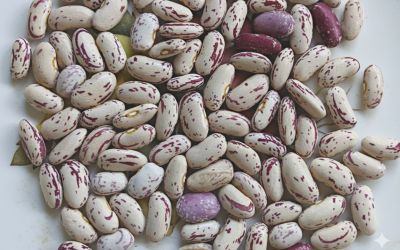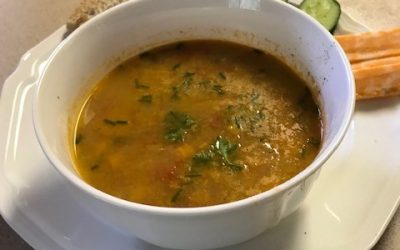Heritage Crops
FOR a changing Climate
Climate uncertainty is affecting food production around the world and here in Canada.
Agricultural biodiversity holds the key to future food security
Crop biodiversity is in decline as conventional agriculture focuses on just a few plant species. Within these species, there can be thousands of varieties, the product of farmers and growers as they tested and adapted crops to suit their local climates and food systems over millennia. The gene pool of these plants provides options for a diverse food system and the potential for resilience in the face of changing climates.
Sadly, these heritage (or heirloom) varieties are being lost at an alarming rate, with estimates of up to 75% of them having disappeared over the past 100 years (Seeds of Diversity). Of the remaining varieties, only a very few are available from local seed companies. Our food system is becoming more dependent on fewer and fewer varieties, and this exposes us all to greater climate risks, poorer diets, and increasing food insecurity.
Diffuse Adaptation
One important way to build resilience and adaptation to change and to lower the risk of major crop failures and high food prices is to grow a diversity of varieties of a crop in a variety of ways and places. This “many-eggs-in-many-baskets” approach diffuses the risk to climate uncertainty and extremes, potentially engages many growers, fosters innovation and helps conserve crop biological diversity. In simple terms this approach can be called diffuse adaptation, and like an insurance plan spreads the risk, and encourages forward thinking.
Doukhobor Discoveries – ‘Talyanka’ Beans in Bush and Pole forms
The ‘Talyanka’ bean, a cherished Doukhobor heritage variety from the Kootenays, tells a unique story of agricultural preservation. Believed to have made its way from Italy to Russia via historic trade routes, this speckled variety was rumoured to have been carried to Canada in the hems of Doukhobor women’s skirts. It has since been meticulously maintained by local gardeners in two distinct forms: a compact bush and a climbing pole. Both are essential ingredients in traditional Doukhobor nourishment, including the hearty bean and potato soup that has graced local tables for a century.
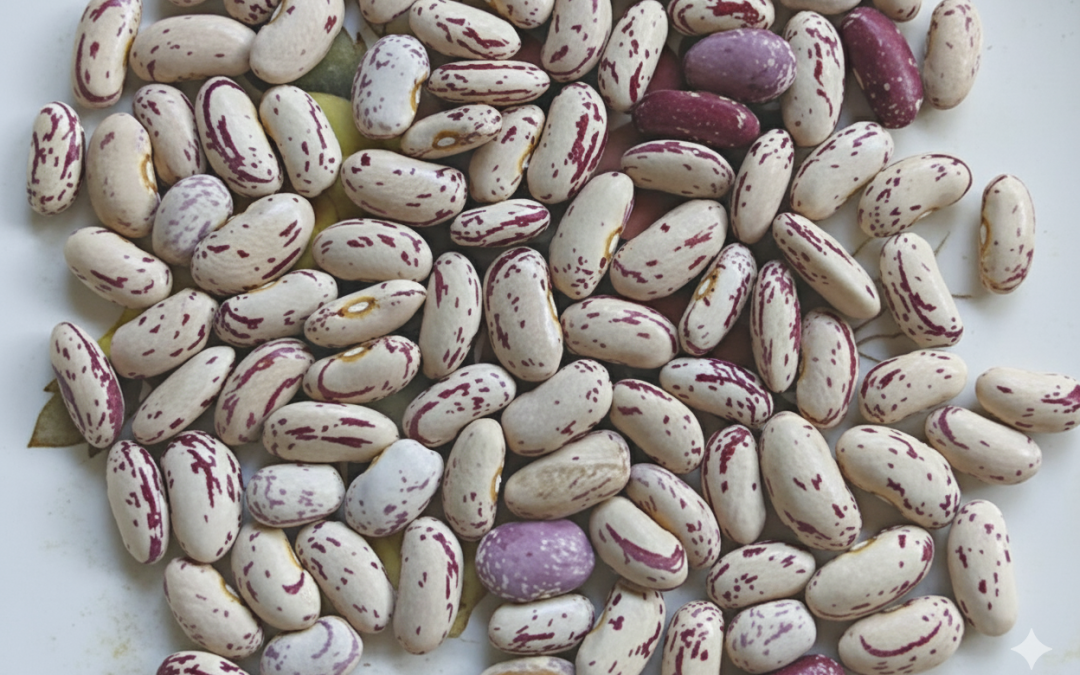
Doukhobor Discovery: “Koozen Drying Bean 2” an early bush bean from southeast British Columbia
Discover the story of the ‘Koozen Drying Bean,’ a rare Doukhobor heritage variety traced back to elder Tena Koozen of the Slocan Valley. Thanks to the dedicated seed saving and sharing by grower Dianne Luchtan, this robust and early ‘Talyanka’ bush bean, has been preserved. Learn about its history, unique growing traits, and its vital role in the peaceful, community-focused traditions of the Doukhobor people.
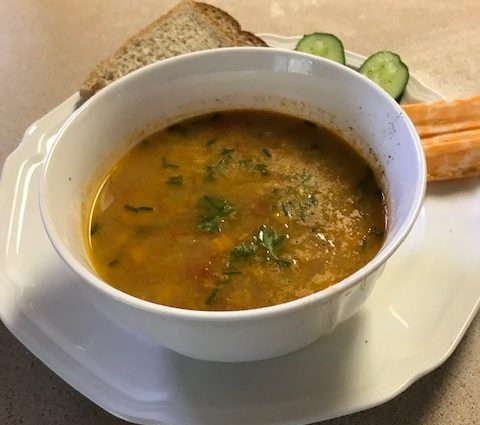
Nourishment and Peace: Soup, beans and gardens in the Kootenays of British Columbia
For over sixty years, Vera and Walter Kanigan have cultivated a garden in the Doukhobor community of Ootischenia. Discover the story behind their heritage ‘Talyanka’ pole beans and learn the traditional, century-old recipe for the hearty bean and potato soup that has nourished their community and represents a legacy of peace and self-sufficiency.
Doukhobor Discoveries – ‘Talyanka’ Beans in Bush and Pole forms
The ‘Talyanka’ bean, a cherished Doukhobor heritage variety from the Kootenays, tells a unique story of agricultural preservation. Believed to be of Italian origin, this speckled bean has been meticulously maintained by local gardeners in two distinct forms: a compact bush and a climbing pole variety. Both are essential ingredients in traditional Doukhobor nourishment, including the hearty bean and potato soup that has graced local tables for a century.
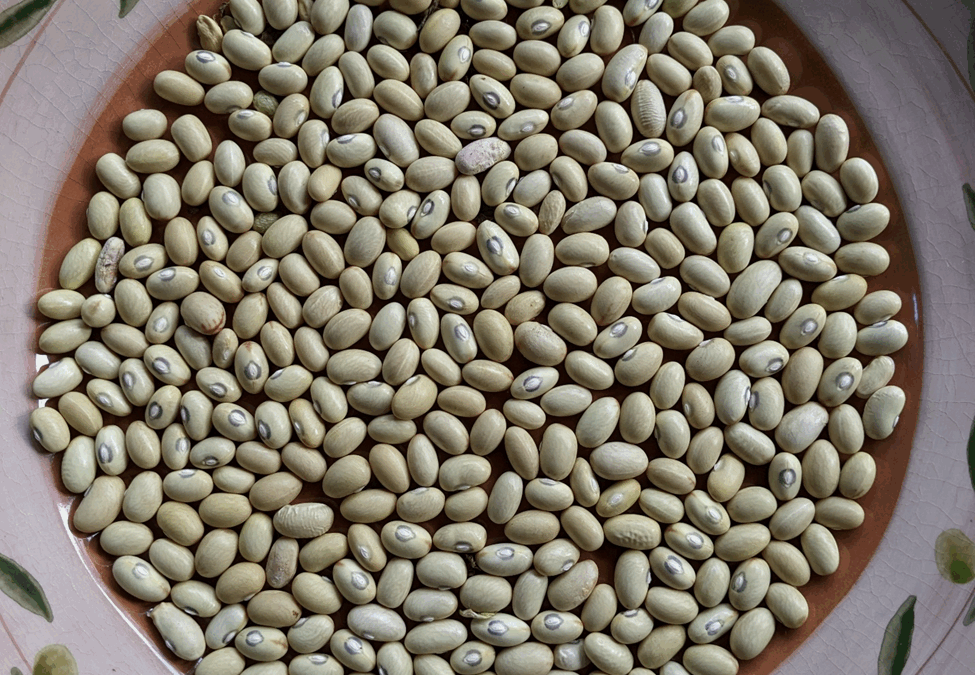
Hutterite Soup Bean: a high yielding heritage bean
Several communal religious settlements depend on raising their own food. Well known among these in North America are the Hutterites who have large communities in the prairies and plains of Canada and the US (https://hutterites.org/history/). Originally, from central...
Home grown food security
Extreme weather and unpredicatable climates threaten food security. Heritage varieties are an important part of our agricultural heritage and critical to future food sustainability. The rich genetic diversity held within heritage varieties is the product of thousands of years of plant breeding and seed saving by people around the world.
Potatoes for a Changing Climate
Potatoes are easy to grow and as such can be part of a strategy of locally grown, food security.
Learning from Northern Growers
Potatoes are easy to grow and as such can be part of a strategy of locally grown, food security.
Plant-Based Protein
Edible legumes are an important source of high-quality protein, especially in their dry form. Food self-sufficiency and sustainability are vital during this time of climate and weather extremes. Dried beans can be an excellent protein source easily grown at home. The Heritage Bean Project
Introducing the Heritage Bean Project: Grow your own protein
In collaboration with Seeds of Diversity, the Crop-Climate Project is starting a Heritage Beans: Diversity and Climate Change project. The objectives of this project are:
- to ensure that Canadian heritage bean and other suitable varieties are more widely known, available and grown.
- to test varieties under a wide rage of climates and cultural conditions and share this knowledge widely.
- to acquire, develop and share knowledge for each variety, including biological characteristics cultural practices and appropriate weather and climate attributes.

Recent Blog Posts
Potatoes In Northern Climates
Potatoes are an easy to grow staple for northern people and with rising temperatures and lengthening growing seasons have the potential to be a key element of food sustainability. We are investigating the practice of growing potatoes in difficult northern climates...
Wiener-Treib: Saving Heritage Beans
A look at Wiener-Trieb, an early-maturing German heritage bean. See trial results for this short-season variety from Vancouver Island & the Sunshine Coast.
Doukhobor Discovery: “Koozen Drying Bean 2” an early bush bean from southeast British Columbia
Discover the story of the ‘Koozen Drying Bean,’ a rare Doukhobor heritage variety traced back to elder Tena Koozen of the Slocan Valley. Thanks to the dedicated seed saving and sharing by grower Dianne Luchtan, this robust and early ‘Talyanka’ bush bean, has been preserved. Learn about its history, unique growing traits, and its vital role in the peaceful, community-focused traditions of the Doukhobor people.
Nourishment and Peace: Soup, beans and gardens in the Kootenays of British Columbia
For over sixty years, Vera and Walter Kanigan have cultivated a garden in the Doukhobor community of Ootischenia. Discover the story behind their heritage ‘Talyanka’ pole beans and learn the traditional, century-old recipe for the hearty bean and potato soup that has nourished their community and represents a legacy of peace and self-sufficiency.



